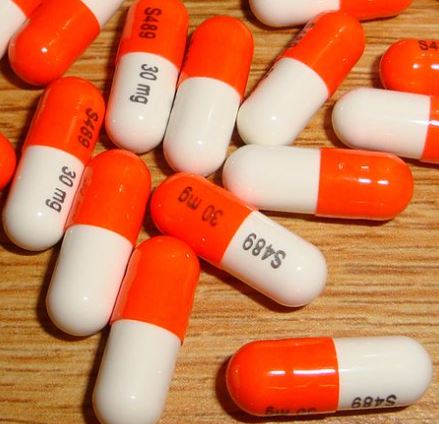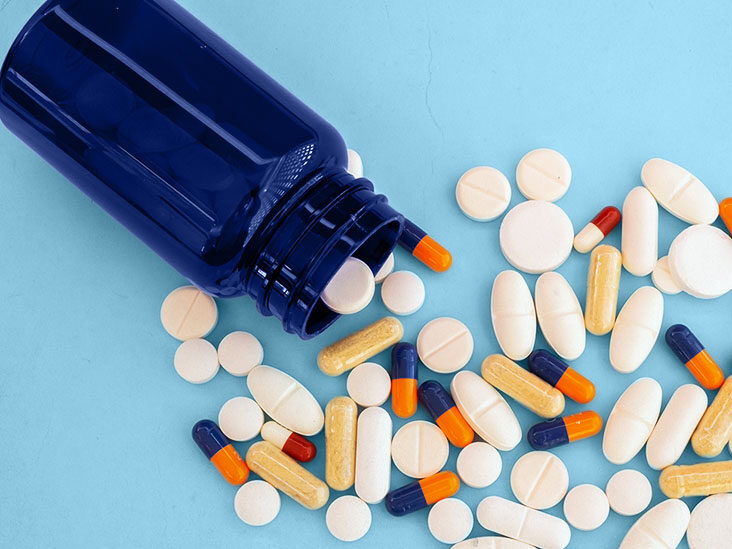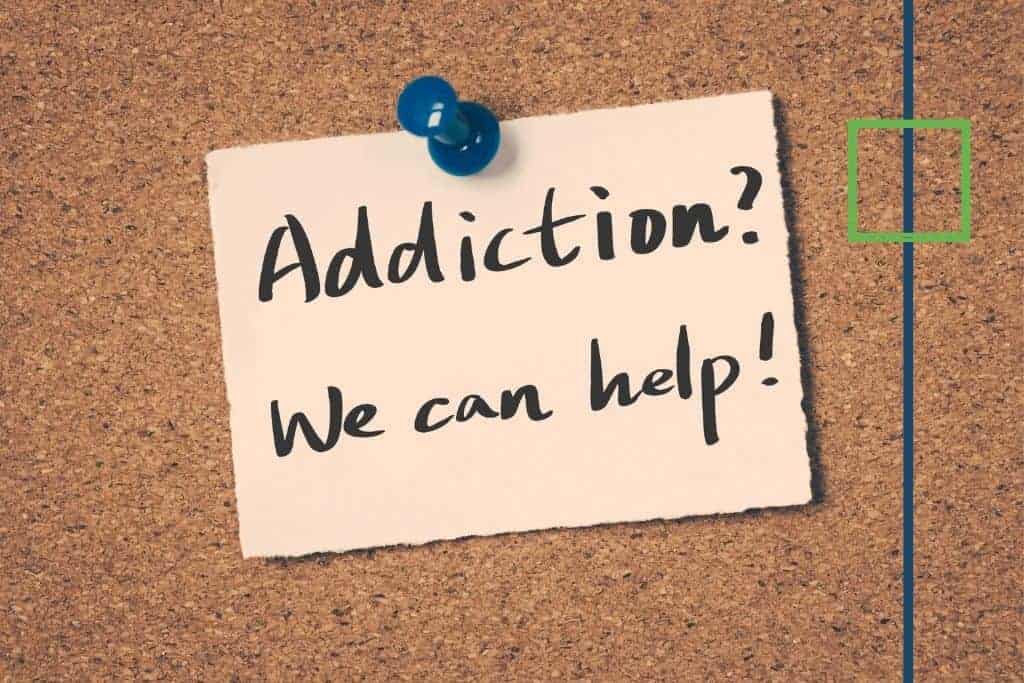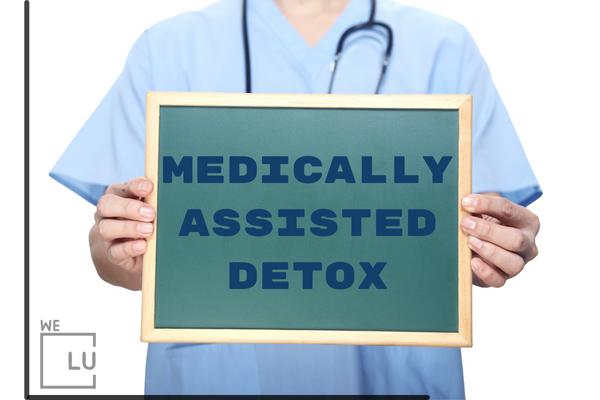Snorting Vyvanse, Is it Safe?
Using a prescription medication in a way not intended by the prescriber can lead to drug abuse, such as snorting Vyvanse. Smoking or snorting Vyvanse is not recommended due to the potential risks and side effects. Snorting Vyvanse may damage your lungs and lead to other negative health effects.
Furthermore, Vyvanse can be addictive, so it’s important to talk to a doctor before you start taking Vyvanse to make sure it’s the right medication for you. Vyvanse may also cause uncomfortable side effects such as nausea, headaches, and insomnia, and the long-term effects of taking it are still unknown. For those reasons, snorting Vyvanse is not recommended.
What is Vyvanse?
Vyvanse is the brand name of a medication prescribed for ADHD treatment and binge eating disorder (BED). This substance is a central nervous system (CNS) stimulant that interacts with several neurotransmitter systems in the brain. It will boost alertness, attention levels, and energy in those who consume it. This substance is similar to other prescription stimulants such as Adderall and Ritalin.
Vyvanse is a prodrug stimulant, which means it is inactive until it is metabolized in the body. Here’s how this works: Vyvanse is comprised of “Lisdexamfetamine Dimesylate” which—unlike many other stimulants—becomes active only after being chemically modified by enzymes in the bloodstream. When metabolized, the lisdexamfetamine in Vyvanse is converted to dextroamphetamine (a potent stimulant) and l-lysine (a natural amino acid).
By requiring enzymatic conversion to the active prodrug once it has been absorbed into the blood from the GI tract, Vyvanse offers a completely different method of time-release compared to other stimulants. Rather than relying on special coatings to slow the effects, Vyvanse achieves its results due to its slow, enzymatic-controlled rise in the concentration of active drugs in the blood.
This unique feature and resulting lack of a quick onset “high” could deter attempts to abuse the medication through methods such as crushing and snorting Vyvanse. However, that does not mean that recreational Vyvanse users do not commonly attempt to snort and inject the drug to achieve a stronger high.
What Happens If You Snort Vyvanse?
Similar to other stimulants, Vyvanse can be abused by people seeking the pleasurable effects of the drug. Those seeking a high may attempt to crush and snort the drug to produce a quicker and “better” high (as this method creates more rapid and intense effects in many other drugs). Users who take the drug recreationally typically do so to:
- Experience a euphoric high
- Help with studying
- Improve concentration
- Increase energy
Rates of prescription amphetamine abuse rose sharply from 2008 to 2012 among 18-25-year-olds and people 26 and older. The Substance Abuse and Mental Health Services Administration found that:
- Large numbers of college students were abusing prescription stimulants (as many as 20% in 2011).
- College students with ADHD were giving away or selling their medication at high rates (approximately a third of students surveyed admitted doing so at least once).

Skip To:
Learn More:

Get Your Life Back
Find Hope & Recovery. Get Safe Comfortable Detox, Addiction Rehab & Dual Diagnosis High-Quality Care.
Hotline(844) 597-1011Vyvanse Drug Facts
Generic Name: Lisdexamfetamine [Lis-dex-am-FET-a-meen ]
Drug Class: CNS stimulants
Controlled Substance Class: Vyvanse is classified as a Schedule II controlled substance. Amphetamines have been extensively abused. Tolerance, extreme psychological dependence, and severe social disability have occurred.

Vyvanse is a central nervous system stimulant. It affects chemicals in the brain and nerves that contribute to hyperactivity and impulse control. Vyvanse is FDA-approved to treat attention deficit hyperactivity disorder (ADHD) in adults and in children who are at least 6 years old.
Vyvanse is also used to treat moderate to severe binge eating disorders in adults. This medicine is not to be used for obesity or weight loss.
Vyvanse Warnings
Vyvanse may be habit-forming, and this medicine is a drug of abuse. Tell your doctor if you have had problems with drug or alcohol abuse.
Stimulants have caused stroke, heart attack, and sudden death in people with high blood pressure, heart disease, or a heart defect.
Call your doctor right away if you have:
- Signs of heart problems–chest pain, feeling light-headed or short of breath
- Signs of psychosis–paranoia, aggression, new behavior problems, seeing or hearing things that are not real
- Signs of circulation problems–unexplained wounds on your fingers or toes.
Amphetamines Drug Fact Sheet Publicly Made Available by the DEA for Prescription Drug Use Disorder Awareness
Vyvanse includes a drug known as lisdexamfetamine that the body has to turn into dextroamphetamine before it can use it. Vyvanse is not a narcotic, but according to the FDA, it is a federally controlled substance (CII) because it can be abused or lead to dependence. It is an amphetamine.
Vyvanse Addiction Statistics
Vyvanse is different from other prescription stimulants such as Adderall (amphetamine-dextroamphetamine) or Ritalin (methylphenidate) because it is not active in its original form. Drugs that remain inactive until they are metabolized are called prodrugs, which can have a lower potential for abuse and drug addiction. Vyvanse is metabolized into the active drug dextroamphetamine through a chemical process called hydrolysis. This is a rate-limiting step that is responsible for the delayed and sustained effect of Vyvanse.
Therefore, crushing, chewing, snorting, or injecting Vyvanse will not result in an immediate effect that produces euphoria or “drug likeability” similar to other commonly abused medications. The prodrug formulation deters patients from seeking immediate stimulation through snorting or injecting the stimulant as the drug’s effects occur over some time. Recreational use of Vyvanse, also called nonmedical use (NMU), is taking Vyvanse in any way other than prescribed.
8%
According to studies surveying adults in the U.S., 7% to 8% of respondents were estimated to have lifetime nonmedical use of prescription stimulants such as Vyvanse.
Source: NCBI
17%
It is estimated that up to 17% of college students abuse prescription stimulants, including Vyvanse.
Source: NCBI
18-25
Nonmedical use of stimulants is most common among patients aged 18 to 25 years.
Source: NCBI
Get Help. Get Better. Get Your Life Back.
Searching for Accredited Drug and Alcohol Rehab Centers Near You?
Even if you have failed previously and relapsed, or are in the middle of a difficult crisis, we stand ready to support you. Our trusted behavioral health specialists will not give up on you. When you feel ready or just want someone to speak to about therapy alternatives to change your life call us. Even if we cannot assist you, we will lead you to wherever you can get support. There is no obligation. Call our hotline today.
(844) 597-1011Is Vyvanse Addictive? Effects of Snorting Vyvanse
Stimulants interact with various neurotransmitters in the brain, but one in particular, dopamine, is related to the “high” produced when abused. When a stimulant medication is used as prescribed, it triggers a release of dopamine at steady levels. When many stimulants are snorted, the dopamine level can rise more quickly and to higher levels, which causes a fast and intense high. Vyvanse, however, is different because it is a prodrug stimulant.
When Vyvanse is consumed orally, it must be processed by serum enzymes after being absorbed into the blood from the GI tract for the effects to be active. This process can take some time, and people looking for immediate onset of effects may attempt to bypass this process by opening the capsule and snorting Vyvanse powder.
While snorting many drugs—such as Adderall (another stimulant) and painkillers like OxyContin—might result in a significant increase in the rate and intensity of effects as compared to oral ingestion, the same does not appear to be the case for Vyvanse.
In actuality, comparisons of Vyvanse use by oral consumption and intranasal consumption show that the effects are equal. The onset and duration of effects were similar as were the levels of dextroamphetamine available in the body whether the substance was snorted or taken orally. In reality, snorting Vyvanse does not speed up or intensify its effects. This is likely due to the chemical formation of Vyvanse, which requires the substance to be processed from lisdexamfetamine to dextroamphetamine to be active. Snorting Vyvanse only causes additional physical harm.

World-class, Accredited, 5-Star Reviewed, Effective Addiction & Mental Health Programs. Complete Behavioral Health Inpatient Rehab, Detox plus Co-occuring Disorders Therapy.
CALL(844) 597-1011End the Addiction Pain. End the Emotional Rollercoaster. Get Your Life Back. Start Drug, Alcohol & Dual Diagnosis Mental Health Treatment Now. Get Free No-obligation Guidance by Substance Abuse Specialists Who Understand Addiction & Mental Health Recovery & Know How to Help.
Dangers of Vyvanse Snorting
Side effects of Vyvanse use (which will increase in number and intensity with abuse) include:
- Problems getting to sleep or staying asleep
- Dizziness
- Sweating
- Shakiness
- Headache
- Dry mouth
- Chest pain
- Problems breathing
- Nausea and vomiting
- Lack of hunger and weight loss
- Pain in the abdomen
- Constipation or diarrhea
- Rapid heart rate
- Chest pain
- Difficulty speaking
- Facial swelling
- Vision problems
- Cyanosis (blue tint to lips, fingers, toes, etc.)
- Motor or verbal tics
- Seizures
Abusing Vyvanse may lead to heart attack, stroke, or even sudden death. In addition to those physical health effects, Vyvanse can trigger or worsen mental health symptoms. Someone snorting Vyvanse may experience:
- Anxiety
- Aggression
- Mood changes
- Delusional thinking
- Paranoia
- Hallucinations (seeing or hearing things that are not present)
Snorting Vyvanse can also lead to other side effects which arise from this specific method of administration. Snorting Vyvanse puts you at risk of:
- Anosmia or compromised sense of smell
- Nosebleeds
- Chemical injury to the nasal septum, potentially resulting in tissue necrosis and/or perforation
- Sinus inflammation
- Dry, hoarse voice
- Difficulty swallowing
- Deterioration of nasal mucosa
Vyvanse Overdose Symptoms
Someone taking Vyvanse as prescribed is at low risk of overdose because the medication is usually started at a low dose and gradually increased. However, someone consuming higher amounts of Vyvanse—with or without medical need—is at a much higher risk of overdose.
Symptoms of Vyvanse overdose include:
- Vertigo and syncope (dizziness and fainting)
- Confusion
- Hostile mood or behavior
- Severe anxiety and panic
- Depression
- Signs of psychosis, including hallucinations
- Markedly elevated body temperature
- Tremors
- Weakness
- Severe nausea and vomiting
- Diarrhea
- Tachycardia or dangerously elevated heart rate
- Hypertensive crisis
- Profuse sweating
- Significant problems breathing, or inability to breathe
- Loss of consciousness
- Seizures
- Stroke
- Cardiac arrest
Abuse of stimulant medications can be dangerous. According to the Substance Abuse and Mental Health Services Administration (SAMHSA), emergency department visits related to prescription medications for ADHD more than doubled from 13,000 in 2005 to 31,000 in 2010.
About 11,600 of these people sought ER treatment from the use of stimulants only while the others required treatment for adverse events related to combining stimulants with other substances. Using stimulants like Vyvanse in combination with alcohol and/ or sedatives like Xanax put the individual at the greatest risk.

Vyvanse Addiction
All stimulant medications have the potential to be abused, but the risk of abuse and addiction varies between each medication version. While Vyvanse was developed with unique chemical properties with the hope of minimizing abuse liability, it still poses a serious risk to those who misuse it. Vyvanse is a Schedule II controlled substance, indicating the risk for severe psychological or physical dependence.
Addiction is a condition marked by observable, behavioral changes in the user. It is the compulsive use of a substance without regard to the dangers that use could bring. Someone who has become addicted to Vyvanse may:
- Take larger doses of the medication than prescribed.
- Spend more time, effort, and money getting and using Vyvanse.
- Struggle to reduce use or altogether quit Vyvanse.
- Shift relationships or have more conflict with loved ones.
- Have reduced performance with tasks at home, work, or school.
- Display odd or unexpected changes in mood.
People snorting Vyvanse may have tools used to inhale the powder or discarded capsules around their space. A powdery substance may be on their clothes, hands, or face from use. Additionally, someone addicted to Vyvanse may begin to experience the physical damage to the sinuses mentioned early.
Vyvanse Addiction Treatment
Someone wanting to end their use of Vyvanse will face a challenging situation. Ending the use of stimulants is related to a period of withdrawal symptoms, sometimes called “the crash.” During the Vyvanse withdrawal period, the user may experience or show signs of:
- Irritability
- Extreme anxiety
- Depression
- Paranoia and scattered thinking
- Increased need for sleep
With some stimulant users, fatigue, depression, and lack of motivation can last for more than four months following the last use. To manage the symptoms and produce a greater likelihood of sustained recovery, professional treatment that includes a period of detoxification is a great option.
Treatments can occur in several inpatient rehab settings depending on the needs of the individual. No matter the location, behavioral therapy will be an essential element of the process. Behavioral therapy options that show success with stimulant users include:
- The Matrix Model. This therapy employs a combination of group and individual therapy sessions focusing on relapse prevention, motivational interviews, 12-step program participation, education, and social support to maintain recovery. This model takes place for 24 weeks.
- Contingency management. This therapeutic approach provides vouchers/rewards for positive, recovery-sustaining behaviors. This approach has shown success with certain difficult-to-treat groups of stimulant abusers.
- Family therapy for addiction. Since people with stimulant use disorders frequently have conflict within relationships, family therapy helps add support, improve relationships, and gain more information about substance use from loved ones.
Reclaim Your Life from Snorting Vyvanse
Vyvanse addiction is a condition that can cause major health, social and economic problems that should not be taken lightly. We Level Up rehab treatment and detox center can provide you, or someone you love, the tools to recover from addiction with professional and safe Vyvanse detox. Feel free to call us to speak with one of our counselors. We can inform you about this condition by giving you relevant information. Our specialists know what you are going through, and each call is private and confidential.
Top 5 Snorting Vyvanse FAQs
-
Can you snort Vyvanse?
No. If the reason you are thinking of snorting Vyvanse is to heighten its effects, this will just cause you unnecessary physical harm.
-
Do people snort Vyvanse?
Some users do. However, snorting Vyvanse will not result in the effects being felt sooner, it is likely that the user could increase the amount of the drug being taken. This could lead to a drug overdose.
-
Can Vyvanse be snorted?
No. When too much Vyvanse is snorted, this could be toxic to the body and could lead to serious side effects.
-
Does snorting Vyvanse work?
No. Vyvanse should only be taken with the advice of a medical professional. Otherwise, it will result in substance use disorder and potential drug overdose. Drug addiction or substance use disorder affects your brain and behavior to the point where you can’t control your use of legal or illegal drugs.
-
Can I snort Vyvanse?
No. Snorting Vyvanse is not likely to result in more intense effects or a rush of euphoria. However, snorting can result in dangerous health effects, including nasal damage, dependence, and overdose.
Experience Transformative Recovery at We Level Up Treatment Centers.
See our authentic success stories. Get inspired. Get the help you deserve.
Start a New Life
Begin with a free call to an addiction & behavioral health treatment advisor. Learn more about our dual-diagnosis programs. The We Level Up Treatment Center Network delivers recovery programs that vary by each treatment facility. Call to learn more.
- Personalized Care
- Caring Accountable Staff
- World-class Amenities
- Licensed & Accredited
- Renowned w/ 100s 5-Star Reviews
We’ll Call You
Search We Level Up Snorting Vyvanse Detox, Mental Health Topics & Resources
Sources
[1] Medine Plus. Lisdexamfetamine.
[3] FDA. VYVANSE ® (Lisdexamfetaminedimesylate).
[5] Martin D, Le JK. Amphetamine. [Updated 2022 Aug 1]. In: StatPearls [Internet]. Treasure Island (FL): StatPearls Publishing; 2022 Jan-. Available from: https://www.ncbi.nlm.nih.gov/books/NBK556103/
[6] Heal DJ, Smith SL, Gosden J, Nutt DJ. Amphetamine, past and present–a pharmacological and clinical perspective. J Psychopharmacol. 2013 Jun;27(6):479-96. DOI: 10.1177/0269881113482532. Epub 2013 Mar 28. PMID: 23539642; PMCID: PMC3666194. In relation to the topic: Snorting Vyvanse
[7] Vasan S, Olango GJ. Amphetamine Toxicity. In relation to the topic: Snorting Vyvanse [Updated 2022 Nov 8]. In: StatPearls [Internet]. Treasure Island (FL): StatPearls Publishing; 2022 Jan-. Available from: https://www.ncbi.nlm.nih.gov/books/NBK470276/
[8] Siefried KJ, Acheson LS, Lintzeris N, Ezard N. Pharmacological Treatment of Methamphetamine/Amphetamine Dependence: A Systematic Review. CNS Drugs. 2020 Apr;34(4):337-365. DOI: 10.1007/s40263-020-00711-x. PMID: 32185696; PMCID: PMC7125061. In relation to the topic: Snorting Vyvanse
[9] Farzam K, Faizy RM, Saadabadi A. Stimulants. [Updated 2022 Jun 16]. In: StatPearls [Internet]. Treasure Island (FL): StatPearls Publishing; 2022 Jan-. Available from: https://www.ncbi.nlm.nih.gov/books/NBK539896/ In relation to the topic: Snorting Vyvanse
[10] Farzam K, Faizy RM, Saadabadi A. Stimulants. 2022 Jun 16. In: StatPearls [Internet]. Treasure Island (FL): StatPearls Publishing; 2022 Jan–. PMID: 30969718. In relation to the topic: Snorting Vyvanse





